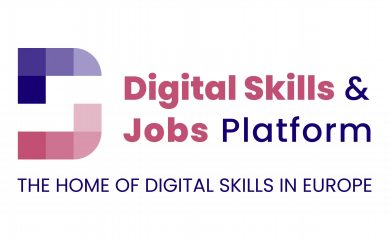The results of the survey about digitalization in companies in Slovenia shows, that more than half of the participating companies do not have a digital strategy. Of the digital technologies, the most widely used in companies are social networks, cloud computing, complete software solutions, mobile applications and business analytics. It should be noted that several vouchers of the Slovenian Enterprise Fund are available to companies to establish a digital strategy and improve employee competencies, with the participation of the Digital Innovation Hub Slovenia.
Digital Innovatio Hub Slovenia, together with the Ministry of Economic Development and Technology, the Chamber of Commerce of Slovenia, KPMG and the Faculty of Organizational Sciences of the University of Maribor, conducted a survey on the state and needs of digitalization in companies in Slovenia. The results of the survey will also assist the Ministry of Economic Development and Technology in allocating funds for digitization.
90 Slovenian companies participated in the survey (62% from the western and 38% from the eastern cohesion region). More than half of the participating companies are service companies, followed by manufacturing companies and a few companies in other areas. Regarding the growth factors in companies, 27% of companies maintain the current volume of supply, 28% increase the added value of products and services, 18% expand the offer, 13% increase the volume of sales, and 8% of companies are the leading provider.
Most of the participating companies (44%) create a competitive advantage through technological development or services, 41% through the digitalization of the business model and 13% through other forms. But they focus mostly on innovation, flexibility, quality. Responsibility for digitization or digital transformation in the company is mostly held by directors (48%), followed by IT managers with 10%, with 8% of digitalization managers, and as many as 15% of companies do not have a specific person for digital transformation or this is done by others with 14%, e.g. external contractors, management, employees, etc.
Out of 90 companies, only 22% of companies have a formally written digital strategy, and 78% of companies still do not have one.
The survey showed that 41% are implementing the digital transformation, 24% are planning for this year, 16% for the next three years, and 6% of companies are not planning a digital transformation. The reasons for the fact that the company is not planning a digital transformation are mainly due to the lack of funds or the company believes that their activity is not suitable for digitalization.
When asked which areas are covered by their digital transformation strategy and to what extent, it was found that with the highest average customer experience (5 - very large), and the lowest Industry 4.0 (average 3.5 - medium).
Part of the survey also referred to the level of added value that processes in the company and the degree of digitization of processes or. planning them. The results showed that the highest level of added value is mainly the provision of services, sales and development of products and services. The greatest need is for the digitalisation of service delivery, accounting and finance, sales and marketing.
Regarding the use of digital technologies used by companies or. plan their use, dominated by social networks, cloud computing, comprehensive software solutions, mobile applications and business analytics. The results of the impact of digitalization on changes in the business model are also telling, namely the main impacts are mainly in increasing business efficiency, customer relations and new sales channels.
Companies mainly use their own resources and their own financial resources to implement digitalisation. 67% of companies do not measure how much of their annual revenue is invested in IT and digitalisation. The main reasons for the slow implementation of digitization are, in particular, the overburdening of existing staff, lack of financial resources, excessive costs of digitization and lack of knowledge.
As a key form of support, the companies highlighted assistance in the digitalization of processes, raising the digital competencies of employees, the preparation of digital strategies and digital marketing tools.








